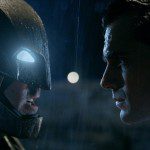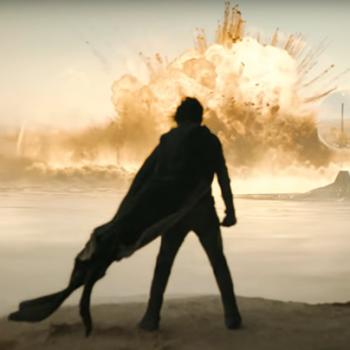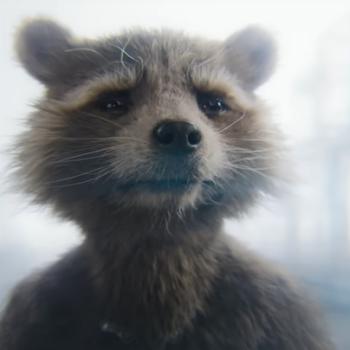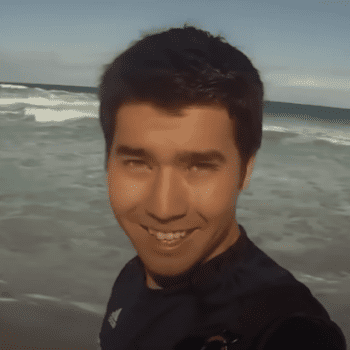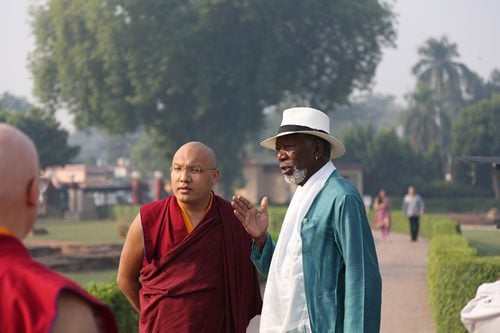
“I leave it to the faithful to burn each other’s churches and mosques and synagogues, which they can be always relied upon to do,” Christopher Hitchens wrote in God is Not Great: How Religion Poisons Everything. Hitchens, in this, is sadly right. The great world religions have not, historically, played well together. Our world is a violent one, and faith is often at the root of it. Just this Easter weekend, 72 people were killed in a suicide bombing targeting Christians in Pakistan—a bombing carried out by the Islamic State.
But that sad reality should not obscure another reality—just as true and just as important: Religion unites people as much as it divides them. If we knew more about other people’s faiths, we might see more similarities than differences between us. Sure, those differences are, indeed, important. We can’t deny them. But if we take the time to look at the similarities our own beliefs share with others, we might begin to look at the world not so much in terms as “us” and “them” and more as a collective “we.”
That’s one of the prime takeaways from the National Geographic Channel’s The Story of God, hosted by Bruce Almighty’s god himself, Morgan Freeman.
The six-part series, which begins on April 3 with “Beyond Death,” seeks to explore some of life’s biggest, most important questions through the prism of faith: Who is God? What is evil? What happens when we die? Etc. Freeman (who calls himself a “lifelong student of religion”) and this show aren’t looking for absolute answers—proof that, say, Zoroastrianism is the way to go—but rather what we can learn about ourselves, and what we may share with others, through our faith.
“One thing we learned traveling around the world is that people need faith,” Executive Producer James Younger told me. “They need to have a place [to find] a ritual moment, a meditative moment. There’s a universal human need for faith.”
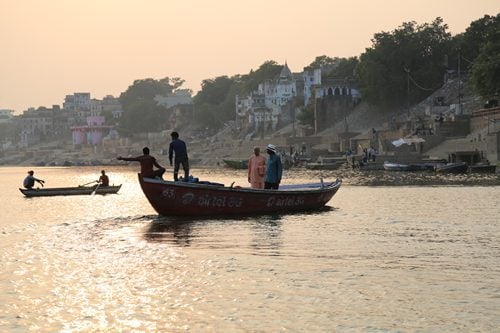
For 40 days and 40 nights, Younger, Freeman and their team crisscrossed the globe, visiting some of the world’s holiest sites and talking to its foremost scholars. In the opening episode alone, Freeman visits Egypt’s ancient temples and stops to watch cremations beside India’s Ganges River. He traipses to Jerusalem to visit the Church of the Holy Sepulchre, then visits with a scientist who hopes to preserve her partner’s essence in a (kind of creepy) robot. It’s all fascinating stuff.
Some of the sites made a strong impact on the show’s cast and crew. Younger especially remembers visiting a Buddhist monastery in Sarnath, India—one of the holiest sites in Buddhism. He was deeply moved as he watched the 300 or so young monks cook together, live together and especially worship together. Their chanting ceremony was incredible, according to Younger. “The whole room is booming with this sound,” he said.
In an interview released by National Geographic, Freeman said he “felt more in tune with what I experienced at Joel Osteen’s church [Lakewood Church in Houston, Texas] than I have felt at any other location. I just think I can see why his message resonates with so many people. And in meeting him, I thought, ‘this guy’s for real.'”
They came to each of these locales with the openness of a curious, spiritual seeker. “We’re talking to people of faith,” Younger said, “and you’re not trying to challenge what they think. We’re not looking for evidence here.” And yet, The Story of God approaches its subjects with a certain scientific remove—a posture of respect, but not reverence.
In the opening episode, for instance, Freeman talks of Egypt as where belief in the afterlife began, as if the belief itself was somehow an evolutionary process. I’m guessing that many believers would characterize their ideas of heaven or reincarnation not as an outgrowth of human development, but a spiritual revelation.
But that’s a quibble, really. The Story of God isn’t here to bolster what we know or believe about our own religions: There are other, better resources with which to do that. But it does want to teach its viewers something about the other religions in our midst—an admirable goal, given our increasingly multi-religious (and increasingly secular) culture. Indeed, this show takes, in a sense, a very un-Hitchens-like stance: Religion doesn’t poison everything, but rather it hellps everything grow. It infuses life with meaning, it instills hope, it has been one of the main cornerstones of civilization itself. And it’s not going anywhere.
“I think we’re trying to help people understand,” Younger says. The understanding of one another’s faith is critical in our understanding of each other. “We’re not saying that they [the believers of one particular religion] don’t have it right, but that people [of different religions] are coming to faith from the same motivations that they are.”


